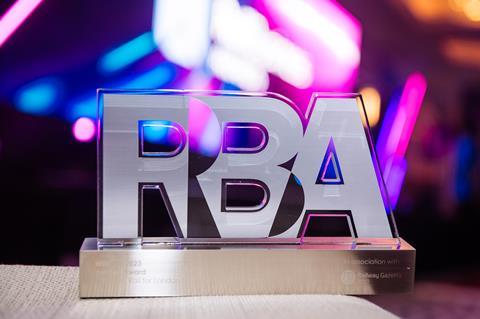
UK: After 25 years in London, the longest established national awards for the UK rail sector has decided to start ringing the changes, and reflect the geographical spread and diversity of our railway network. The 26th Rail Business Awards will therefore be taking place in Manchester, in February 2024.
Manchester has a proud industrial history, and railways have played a special part in the growth and prosperity of the city over almost two centuries. Today, it remains one of the UK’s leading railway hubs, with an extensive spread of inter-city and inter-regional services offering convenient links to bring RBA participants and their guests from all parts of Britain.
The world’s first inter-city passenger railway was opened between Liverpool and Manchester in 1830, setting in train a veritable transport revolution. Recognised as the world’s oldest surviving railway terminus, the line’s Liverpool Road station survives as part of the Manchester Museum of Science & Industry.
The world-famous Manchester United football club began life in 1878 as Newton Heath LYR FC, founded by the Carriage and Wagon department at the Lancashire & Yorkshire Railway workshops. Funded by the company, the team initially played games against other departments and railways. In the 1950s the UK’s first electrified main line linked Manchester and Sheffield via Woodhead tunnel, with both passenger and freight trains hauled by faster and cleaner electric locomotives that slashed journey times.
Many railway businesses are located in or near the city. The world-famous Trafford Park was the first planned industrial estate in the world, housing many railway suppliers including British Westinghouse, which later became part of Metropolitan-Vickers, AEI and English Electric. These firms became part of GEC Traction Ltd, before being absorbed into the new Anglo-French group, GEC Alsthom. Today’s Alstom still has a major presence in the city, and the Manchester Traincare Centre is home to the Pendolino tilting train fleet which transformed journey times on the West Coast Main Line in the early 2000s.
Manchester’s Metrolink is the most extensive light rail system to be developed in the UK, now operating a 103 km network forged from a mix of former railway alignments and new routes to serve 99 stops. In the coming years, Metrolink looks set to join the city’s newly branded Bee Network, which recently launched its first franchised bus operations.
Away from rail, Manchester has a proud record as a centre for innovation and education. Chetham’s library, near Victoria Station, is the oldest public library in the English-speaking world, having been in continuous use since 1653. The opening of the Bridgewater Canal in 1761 marked the beginning of the Industrial Revolution. In 1903, Emmeline Pankhurst founded the Women’s Social & Political Union in the city. A year later, a meeting between Charles Rolls and Henry Royce at Manchester’s Midland Hotel led to their agreement to establish the automotive company Rolls-Royce. In 1917 the atom was first split at Manchester University by Ernest Rutherford, and 31 years later, in 1948 the world’s first computer with an electronic stored memory was designed and built at the same university.
Those staying overnight in Manchester following the RBA gala dinner may well breakfast with a cereal produced by Kellogg’s; the American company has its largest factory anywhere in the world in nearby Trafford. Meanwhile, they may reflect on the origins of the vegetarian movement, which was founded in the neighbouring city of Salford in 1847.
In recent years Manchester has become a centre for media and the arts, leading to the establishment of MediaCityUK in the early 2010s. Technically located in Salford, that development has become home to a significant part of the BBC, including BBC Sport and Children’s BBC as well as Breakfast News, Radio 5 Live and Radio 6 Music. ITV Granada is based at the same site, with its world-famous Coronation Street set having been relocated to MediaCityUK in 2013.
MediaCityUK is now home to some of the UK’s most popular TV shows including; Countdown, Who Wants to Be a Millionaire?, The Voice UK, University Challenge and The 1% Club. It is also the base for two of the nation’s charity fund-raising biggest events: BBC Children in Need and Comic Relief.



